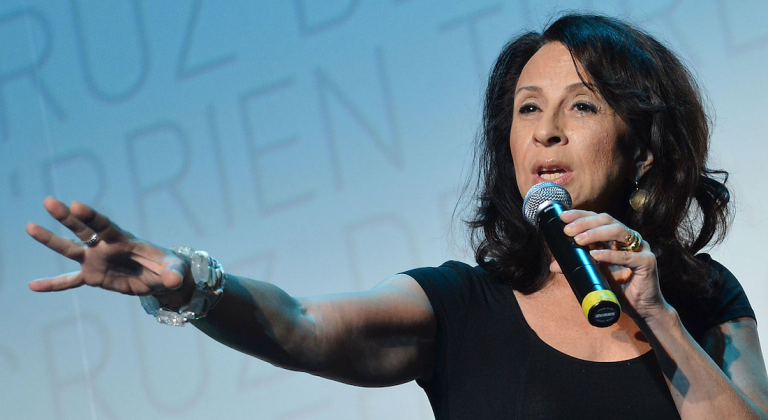
A Green Card Didn’t Guarantee Safety—Then or Now
New York, N.Y. — Award-winning journalist Maria Hinojosa — author, professor, and the founder of Futuro Media Group — wrote an essay for MSNBC recently that was particularly striking.
She wrote that growing up on Chicago’s South Side in the 1960s, “I never imagined my green card—a symbol of legal belonging—could be so fragile. My family arrived from Mexico City when I was a year old, my father fast-tracked for U.S. citizenship as a scientist at the University of Chicago. To us, America was a land of democracy, where even my mother, Berta, took us out of school to attend a Martin Luther King Jr. rally. But the cracks in that idealism showed early.
“Trump’s policies aren’t new; they’re the escalation of a system
that’s always viewed immigrants as conditional guests.”
“At a Texas bus stop, my light-skinned father faced the humiliating choice between “Whites Only” and “Colored” bathrooms. At the airport, an immigration agent tried to quarantine me over a rash, dismissing my mother’s protests despite our legal status. By six, my Jewish best friend and I planned which basement to hide in if segregationist George Wallace won the presidency. We knew: even with papers, we weren’t fully safe.

The Illusion of Security
“Decades later, that illusion has shattered. Under Trump’s second administration, green card holders like Columbia student Mahmoud Khalil are detained for pro-Palestinian activism, accused of “adverse foreign policy consequences.”
Others, like Yunseo Chung and Mohsen Mahdawi, face deportation for the same reason. Their stories mirror my own student activism at Barnard in the 1980s—except back then, the NYPD didn’t raid dorms for protesting apartheid investments. Now, ICE does.
“I was lucky. As a Barnard student, I joined protests against the college’s honor for Jeanne Kirkpatrick, a Reagan official linked to El Salvador’s death squads. We won—Kirkpatrick’s medal was rescinded—but today, such activism could cost me my status.
My journalism career, including investigations into immigrant detention abuses for Frontline, would’ve been impossible under Trump’s targeting of dissent.
Why I Became a Citizen
“By 1989, I’d learned the hard way: a green card wasn’t enough.
Reporting in Cuba and Nicaragua, I risked scrutiny at U.S. borders. The memory of that airport agent—ready to separate a legal immigrant baby from her mother—haunted me.
Naturalization was my shield. Now, as a professor at Barnard, I see my students facing the same fears I once dismissed. Undocumented or not, they know activism could mean deportation.
A Warning and a Call
“Trump’s policies aren’t new; they’re the escalation of a system that’s always viewed immigrants as conditional guests. My story—from Chicago to the Pulitzer Prize—is a testament to what’s possible when immigrants aren’t hunted.
But for every student like Mahmoud, Yunseo, or Mohsen, that possibility narrows. As I tell my students: “There but for the grace of God go I.” The fight isn’t just for them—it’s for the America my mother believed in.
Maria Hinojosa: From Immigrant Child to Fearless Journalist (May 2, 2025)